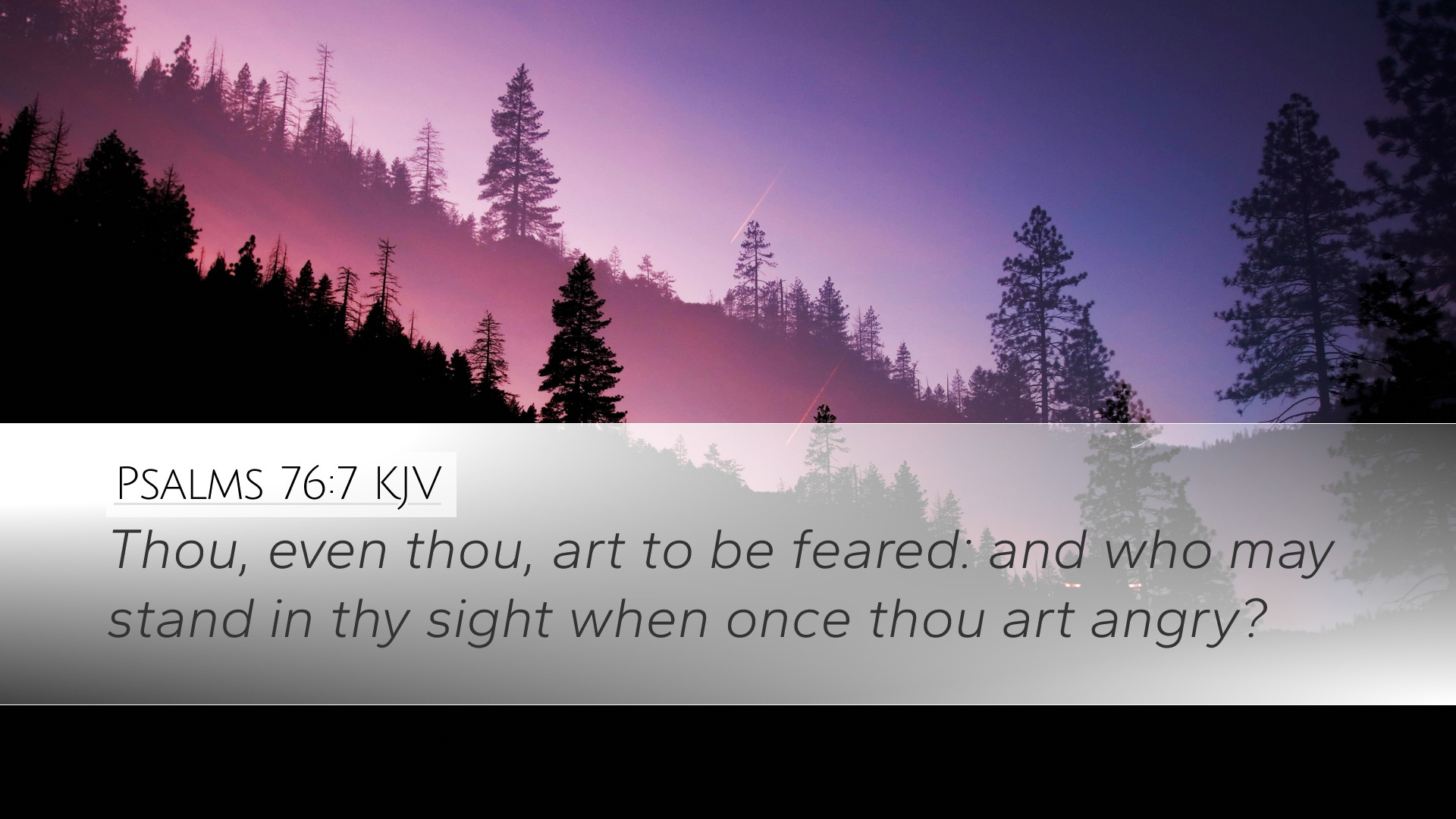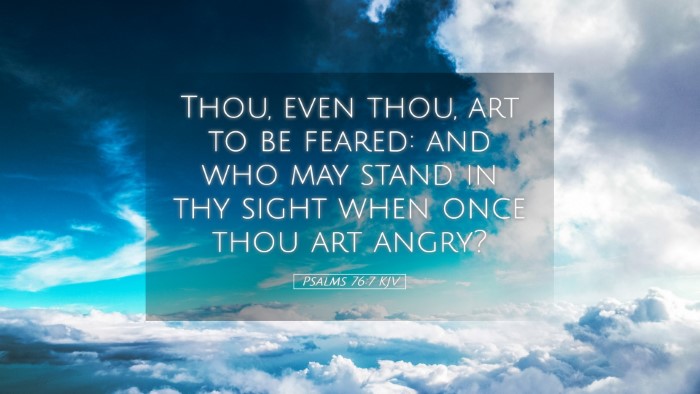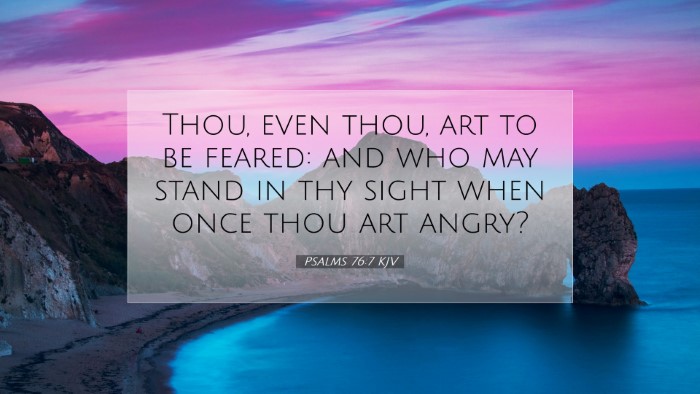Commentary on Psalms 76:7
Bible Verse: "Thou, even thou, art to be feared: and who may stand in thy sight when once thou art angry?" (Psalms 76:7)
Introduction
This verse from Psalms 76 encapsulates a profound theological truth about the nature of God and His relationship with humanity. It emphasizes God's power, holiness, and the reverence that is due to Him. The commentary on this verse draws from various public domain sources such as Matthew Henry, Albert Barnes, and Adam Clarke to provide a comprehensive understanding for pastors, theologians, and students of the Word.
God's Fearfulness
Matthew Henry reflects on the fearfulness of God, highlighting that He alone is to be feared above all. The fear of God is not merely a terror but a deep respect and reverence for His majesty and authority. Henry asserts, “The fear of God is the beginning of wisdom,” and thus, true understanding comes from recognizing God's sovereignty.
Albert Barnes elaborates that God's fearfulness is rooted in His holiness and justice. When people encounter God in His true nature, they cannot stand before Him without being aware of their sinful state. This fear channels believers toward repentance and humility, aligning their hearts with God's holiness.
Who May Stand?
The rhetorical question posed in this verse, “who may stand in thy sight?” emphasizes the unapproachable and awe-inspiring nature of God. Adam Clarke notes that this confronting question serves to remind humanity of their frailty compared to the infinite greatness of God. He argues that no one can stand before God’s fiery presence unless clothed in the righteousness available through Christ.
This leads to an understanding that access to God is granted by grace; hence, believers must continually strive for holy living to stand before His holiness.
The Anger of God
The second part of the verse mentions God’s anger, a reminder of His just disposition against sin and unrighteousness. Matthew Henry counsels that God's anger shines a light on the divine justice which is unyielding against sin. His anger is not capricious but rather a reflection of His nature which abhors sin and upholds righteousness.
Albert Barnes adds that God’s anger is often directed towards transgressions and is not a whimsical display of emotion; rather, it is warranted by His holiness. This aspect calls believers to prioritize repentance and seek reconciliation with God to avoid the consequences of His wrath.
Theological Implications
This verse invites deeper theological reflection on the attributes of God—the balance between His love and fearsome presence. Adam Clarke emphasizes that while God is a God of love, His love is not devoid of justice. The anger of God, therefore, must lead us to respect His power and authority.
Thus, understanding God as both a loving Father and a righteous Judge forms the crux of Christian faith, where the believer is encouraged to tremble before God’s anger yet rejoice in His mercy.
Practical Applications
- Reverent Worship: Understanding God’s fearsome nature should draw believers into a deeper, more reverent worship experience.
- Awareness of Sin: Recognizing the holiness of God compels believers to confront their own sinfulness and seek His forgiveness.
- Encouragement in Trials: In moments of trial or when facing the consequences of sin, believers should remember God’s readiness to forgive and His desire for restoration.
- Proclamation of Justice: Believers should be encouraged to proclaim God’s justice to the world, affirming that without acknowledging sin and God's wrath, one cannot fully embrace His grace.
Conclusion
Psalms 76:7 serves as a powerful reminder of the divine nature of God, the need for reverence, and the importance of approaching Him with a humble heart. The insights from Matthew Henry, Albert Barnes, and Adam Clarke converge to articulate a holistic view of God’s nature—fearful yet loving, just yet merciful. In understanding this, believers will find deep encouragement and a call to live righteously, honoring the holy God who is to be feared and revered above all.


